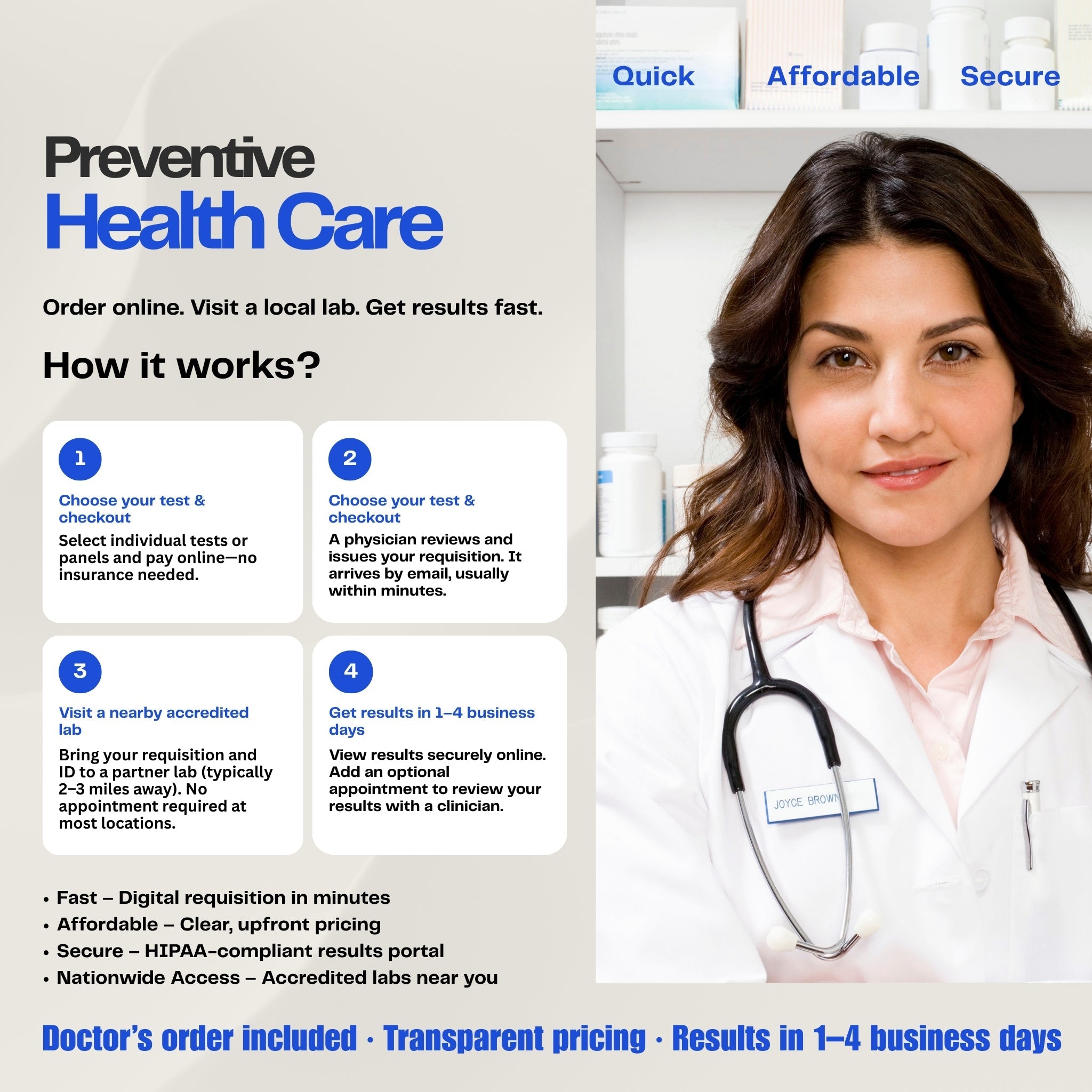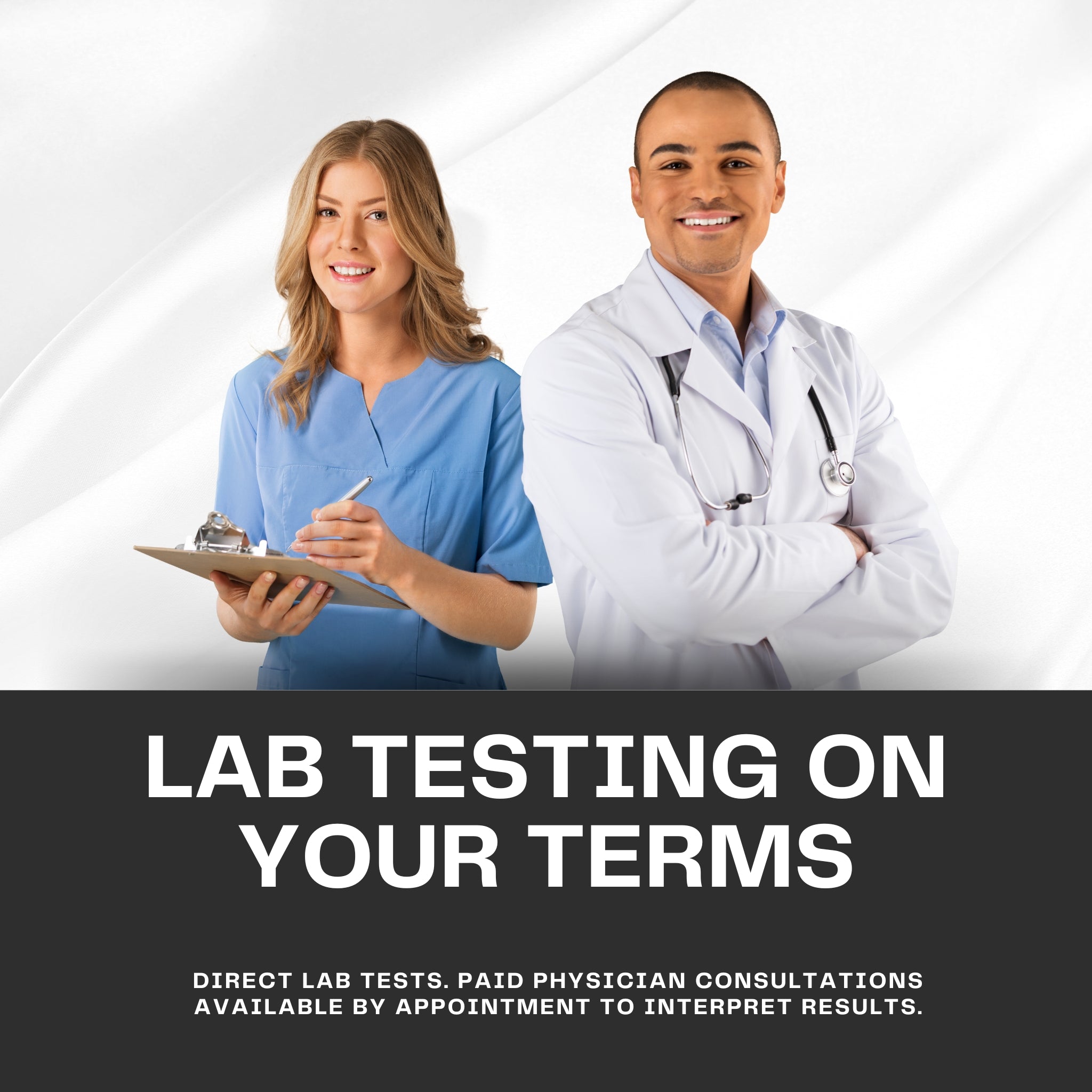

Liver Health Panel
Become a member to unlock discounted pricing and exclusive perks.
The Liver Health Panel is a comprehensive blood test package designed to provide an in-depth assessment of your liver function and overall health status. This panel includes crucial markers to detect liver damage, infections like hepatitis, evaluate metabolic function, assess blood cell health, and check blood clotting abilities. It's an invaluable tool for early detection, monitoring existing conditions, and maintaining general well-being. By analyzing various enzymes, proteins, blood counts, and metabolic indicators, this panel offers a holistic view of your internal health, helping you and your healthcare provider make informed decisions about your health journey.
Quick facts
Blood, Serum, or Plasma
2–4 business days
No Fasting Required
Licensed physician review and requisition included with every test.

How It Works?

once Test Order is received, Our physicians will review your request and email you the easy-to-follow requisition form.

Find the closest partner location—most are within 2–3 miles—and drop by for a quick, no‑appointment blood draw.

Once your sample is processed, we’ll send your report straight to your inbox within 1–3 business days. Just click the link to view your results anytime.

Have Questions about results? Book a phone or video visit with one of our doctors. They’ll walk you through your report, explain any findings, and recommend next steps





